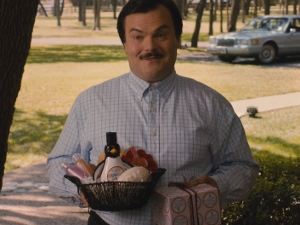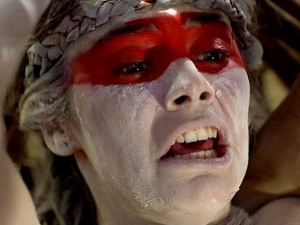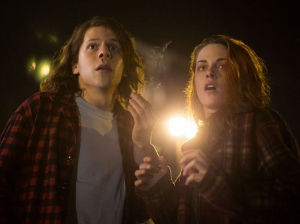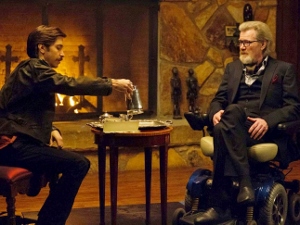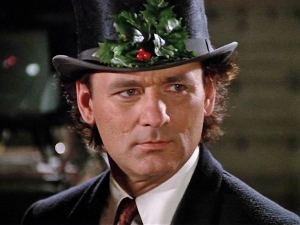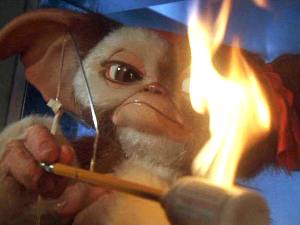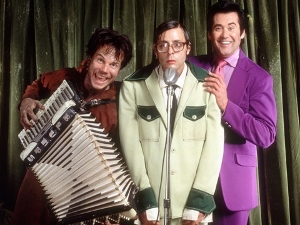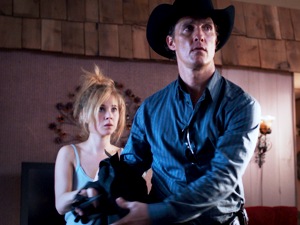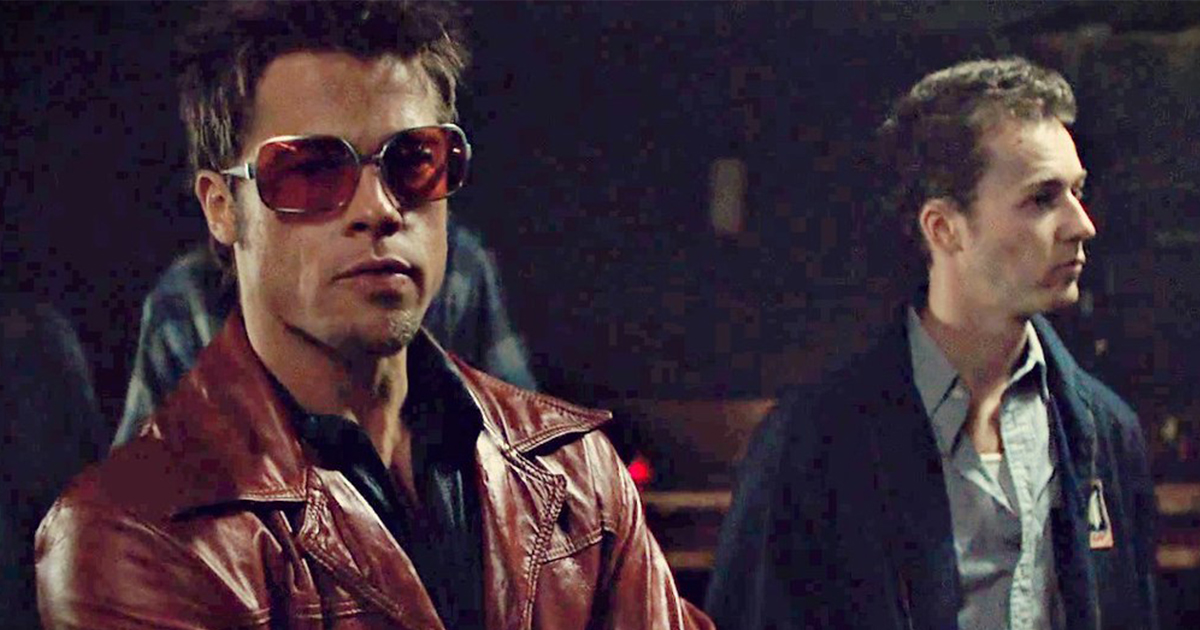The Green Inferno (2015)
American Ultra (2015)
Tusk (2014)
Bachelorette (2012)
Scrooged (1988)
Gremlins 2: The New Batch (1990)
[7]
Gizmo the cute Mogwai is back, and he gets wet again — this time in a New York City skyscraper run by a Donald Trump-like billionaire. Billy Peltzer and Kate Beringer (returning stars Zach Galligan and Phoebe Cates) both work there and re-team with their furry companion just in time to do battle with another army of nasty gremlins. This sequel to the 1984 original is more a madcap comedy than a horror movie, with none of the fable quality or dark atmosphere of the first film. The script is meager enough to allow for large blocks of gremlins shenanigans that overwhelm the movie. This is good if you like monster mayhem, bad if you like a little more in your creature features. While the animatronics and special effects are far superior to those in the first film, director Joe Dante (The Howling, Explorers) indulges in a display of technological prowess that spirals into a busily boring mess before things are over.
The Dark Backward (1991)
[3]
In a dystopian world full of garbage and stained walls, an unfunny comedian (Judd Nelson) starts growing a third arm out of his back. His super-annoying friend (Bill Paxton at his worst) sees the aberration as his ticket out of hell and exploits it for all its worth. A smarmy talent agent (Wayne Newton) decides to rep them, and an even bigger agent (Rob Lowe) decides to bring them to Hollywood. But then the arm disappears and the poor unfunny comedian learns who his true friends are. Spoiler alert: he hasn’t any.

